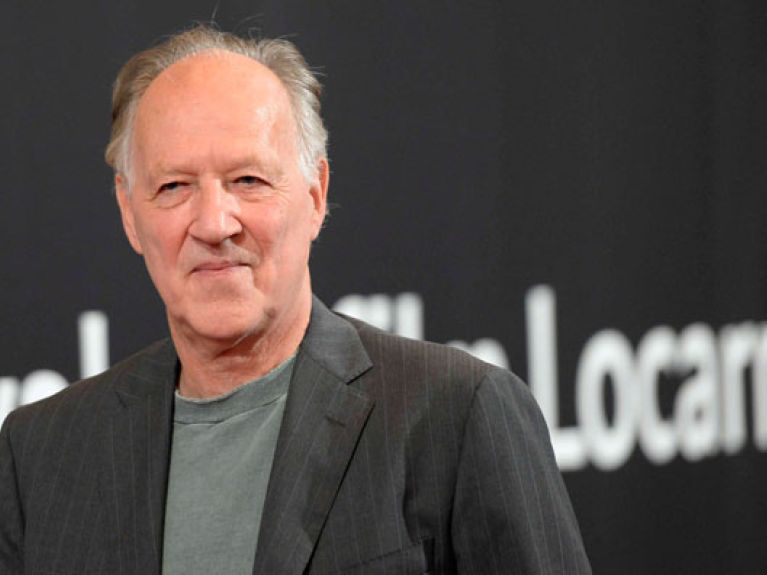Werner Herzog – the great unknown
The German auteur is regarded as a “man of extremes” and as a cult icon in the USA.

Werner Herzog is worshipped like a pop star in the USA. He can choose the actors for his films. Within just 15 minutes, more than 3,000 people apply to take part in his seminars at his Rogue Film School. And for an installation at the New York Whitney Museum people form queues that stretch along several blocks. In 2009, Time Magazine named Werner Herzog as one of the “100 Most Influential People in the World”. But what is the source of the fascination surrounding this man who, since the 1970s, has ranked alongside Rainer Werner Fassbinder, Wim Wenders and Volker Schlöndorff as makers of the New German Cinema, who later left Germany for the USA, and who has always defied any fixed categorisation?
Legendary work with Kinski
Werner Herzog was born in Munich in 1942 as Werner Herzog Stipetic and grew up in Upper Bavaria. Out of protest against his father’s atheism, he became a Catholic. After graduating from high school he studied in the USA where, as he later admitted in an interview, he earned a living for a time as a smuggler. His interest in film developed early on. As a self-taught filmmaker he immediately won the German Film Award for his first feature film Lebenszeichen (Signs of Life). His real rise to fame came through his work with the eccentric actor Klaus Kinski who played the leading role in films such as Aguirre, the Wrath of God“ (1972), Woyzeck (1979) and Fitzcarraldo (1982). The shooting of Fitzcarraldo on location in Peru was surrounded by scandals, and a river steamer really was hauled across a mountain. Such things contributed to Herzog’s image as a “man of extremes”. This image was only strengthened by anecdotes, such as the myth that he had threatened to shoot Kinski.
In the mid-1990s, Herzog went (back again) to the USA, where he turned to making documentary films, staged operas and filmed rock concerts. Talking about his reasons for living in Los Angeles, he told the weekly newspaper Die Zeit: “California is the place where everything developed that has been shaping the world for half a century: the free speech movement, computers, the acceptance of gays and lesbians as an integral part of society, the collective dreams of the world – I’m talking about Hollywood now. But all the stupidities come from here too: the hippie movement, the New Age idiocy, aerobic studios, starlets who go to yoga classes. It’s right to be living in an environment where all of these new beginnings emerged.”
Berlin International Film Festival from 5 to 15 February 2015; Werner Herzog’s latest film Queen of the Desert is showing in the 2015 Berlinale Competition.
© www.deutschland.de

